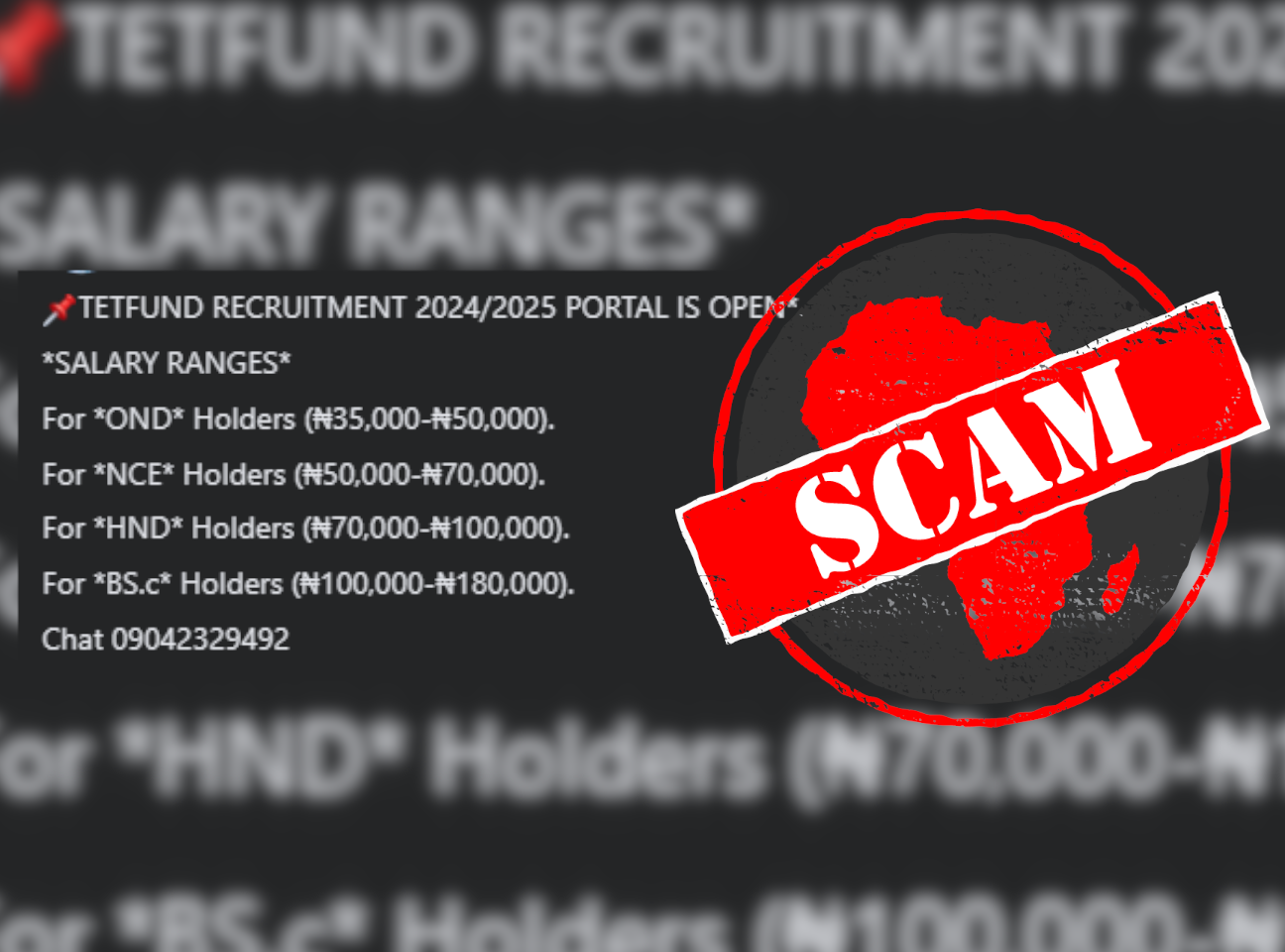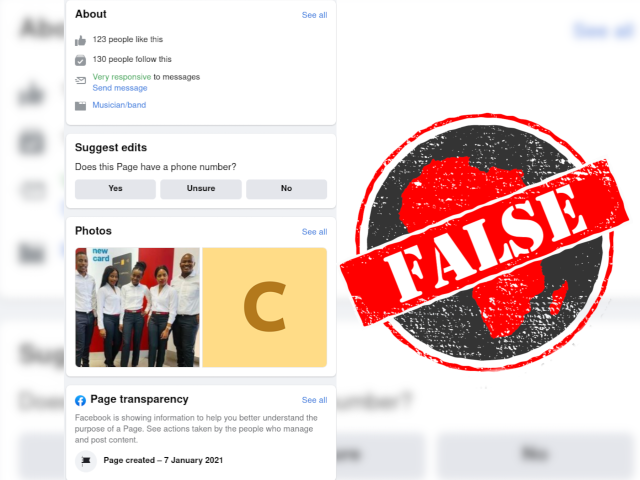IN SHORT: Nigeria’s Tertiary Education Trust Fund isn’t recruiting. Beware of scammers claiming otherwise.
The Tertiary Education Trust Fund (TETFund) is responsible for funding Nigeria's public higher education institutions.
The agency was established in 2011 by the country’s federal government to manage education tax funds for governmental tertiary education institutions.
Ads for jobs at the agency would attract many looking for work. TETFund has six offices across the country.
A post shared to a Facebook group with over 230,000 members in January 2024 claims that TETFund is recruiting.
The post provides salary ranges for various academic qualifications. For example, applicants with an ordinary national diploma will apparently earn a salary between ₦35,000 and ₦50,000 (US$25 to $35).
The post includes a mobile number where applicants are encouraged to “chat”.
The same message appears on Facebook here, here, here, here, here, here and here. Several include links to a number of supposed recruitment “portals”.
Africa Check has investigated several similar fake job adverts created for identity theft and fraud. Are these more of the same?

No recruitment at TETFund
There are several red flags in the Facebook post itself. For example, while this particular post says the recruitment portal is “now open”, it doesn’t include a link but gives only a mobile number. A legitimate recruitment process usually does not involve chatting via a private number.
We visited the TETFund website and the first thing we saw was a disclaimer about the recruitment portal. “Disclaimer! Disclaimer!! Disclaimer!!,” the agency tweeted on its official X handle.
The agency also told Africa Check that the recruiting post was fake.
“TETFund is not recruiting,” the agency’s media team said.
For tips on how to spot online scams offering jobs, grants, loans, and gifts, read our guide here.
Republish our content for free
For publishers: what to do if your post is rated false
A fact-checker has rated your Facebook or Instagram post as “false”, “altered”, “partly false” or “missing context”. This could have serious consequences. What do you do?
Click on our guide for the steps you should follow.
Publishers guideAfrica Check teams up with Facebook
Africa Check is a partner in Meta's third-party fact-checking programme to help stop the spread of false information on social media.
The content we rate as “false” will be downgraded on Facebook and Instagram. This means fewer people will see it.
You can also help identify false information on Facebook. This guide explains how.





Add new comment